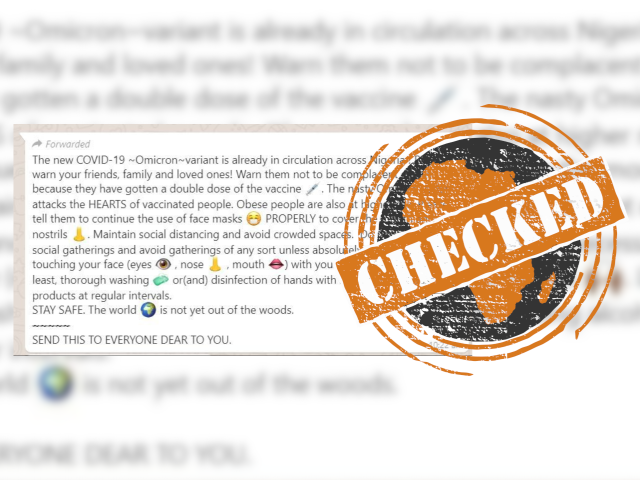This article is more than 7 years old
In a statement commemorating international day against drug abuse on 26 June, the South African presidency said: “Indications are that between 7.5% and 31% of South Africans have an alcohol problem or are at risk.”
We contacted the presidential spokesman to ask for the source of the figures but did not get a response to emails or calls.
That exact line appears in South Africa’s Drug Master Plan for 2006-2011, though. The plan, updated every five years by the department of social development, lays out the country’s strategy to prevent and reduce substance abuse and the social and economic impact associated with it.
The plan stated that risky drinking on weekdays involved an average of 7.5% of the population and was said to be more prevalent at weekends “with an average of 31.5% of those aged between 25 and 54 at greatest risk”.
The drug master plan listed South Africa’s 1998 Demographic and Health Survey as its source but the figures do not line up. For example, the alcohol data in the survey showed that the majority of people did not report drinking alcohol, with 44.6% of men and 16.9% of women drinking alcohol at the time of the survey.
Risky drinking was defined as drinking five or more standard drinks per day (men) or three and more drinks per day (women). Of the people who used alcohol, 6.9% of men and 8.7% of women drank at risky levels during the week, with a third of the people who reported drinking alcohol doing so over weekends.
Director of the Alcohol, Tobacco and Other Drug unit at the Medical Research Council, Professor Charles Parry, referred us to the last nationally representative study on the prevalence of common mental disorders in South Africa.
As we explained in a previous report, the study also identified substance abuse and disorders using the criteria of two international systems, the DSM-IV and the ICD-10.
The data for alcohol disorders showed that 1.2% of study participants suffered from alcohol dependence and 4.5% from alcohol abuse over a 12-month period. The data for lifetime prevalence of alcohol dependence was 2.6% and alcohol abuse 11.4%.
The presidency’s statement that indications are that “between 7.5% and 31% of South Africans have an alcohol problem or are at risk” of having one is incorrect.
The most recent national study put the figure at 1.2% (for alcohol dependence) and 4.5% (for alcohol abuse) over a 12-month period. The lifetime prevalence of alcohol dependence was 2.6% and that of alcohol abuse 11.4%.
Additional reading
Do 15% of SA’s population have a drug problem? We fact-check 4 ‘shocking stats’
We contacted the presidential spokesman to ask for the source of the figures but did not get a response to emails or calls.
Data source listed as 1998 study
That exact line appears in South Africa’s Drug Master Plan for 2006-2011, though. The plan, updated every five years by the department of social development, lays out the country’s strategy to prevent and reduce substance abuse and the social and economic impact associated with it.
The plan stated that risky drinking on weekdays involved an average of 7.5% of the population and was said to be more prevalent at weekends “with an average of 31.5% of those aged between 25 and 54 at greatest risk”.
The drug master plan listed South Africa’s 1998 Demographic and Health Survey as its source but the figures do not line up. For example, the alcohol data in the survey showed that the majority of people did not report drinking alcohol, with 44.6% of men and 16.9% of women drinking alcohol at the time of the survey.
Risky drinking was defined as drinking five or more standard drinks per day (men) or three and more drinks per day (women). Of the people who used alcohol, 6.9% of men and 8.7% of women drank at risky levels during the week, with a third of the people who reported drinking alcohol doing so over weekends.
Alcohol dependence at 2.6% over lifetime
Director of the Alcohol, Tobacco and Other Drug unit at the Medical Research Council, Professor Charles Parry, referred us to the last nationally representative study on the prevalence of common mental disorders in South Africa.
As we explained in a previous report, the study also identified substance abuse and disorders using the criteria of two international systems, the DSM-IV and the ICD-10.
The data for alcohol disorders showed that 1.2% of study participants suffered from alcohol dependence and 4.5% from alcohol abuse over a 12-month period. The data for lifetime prevalence of alcohol dependence was 2.6% and alcohol abuse 11.4%.
Conclusion: The claim is incorrect
The presidency’s statement that indications are that “between 7.5% and 31% of South Africans have an alcohol problem or are at risk” of having one is incorrect.
The most recent national study put the figure at 1.2% (for alcohol dependence) and 4.5% (for alcohol abuse) over a 12-month period. The lifetime prevalence of alcohol dependence was 2.6% and that of alcohol abuse 11.4%.
Additional reading
Do 15% of SA’s population have a drug problem? We fact-check 4 ‘shocking stats’





Add new comment